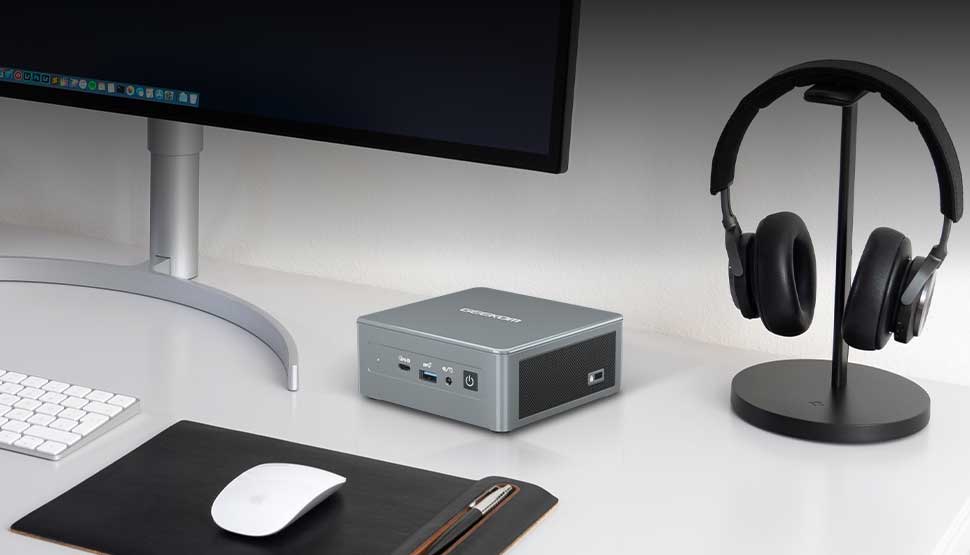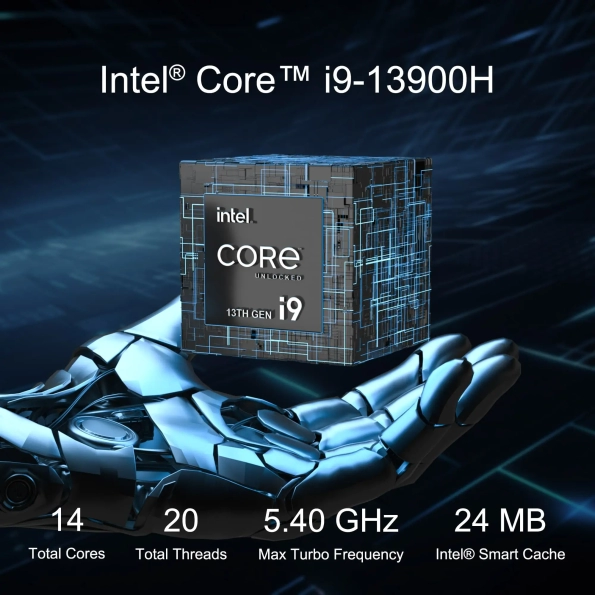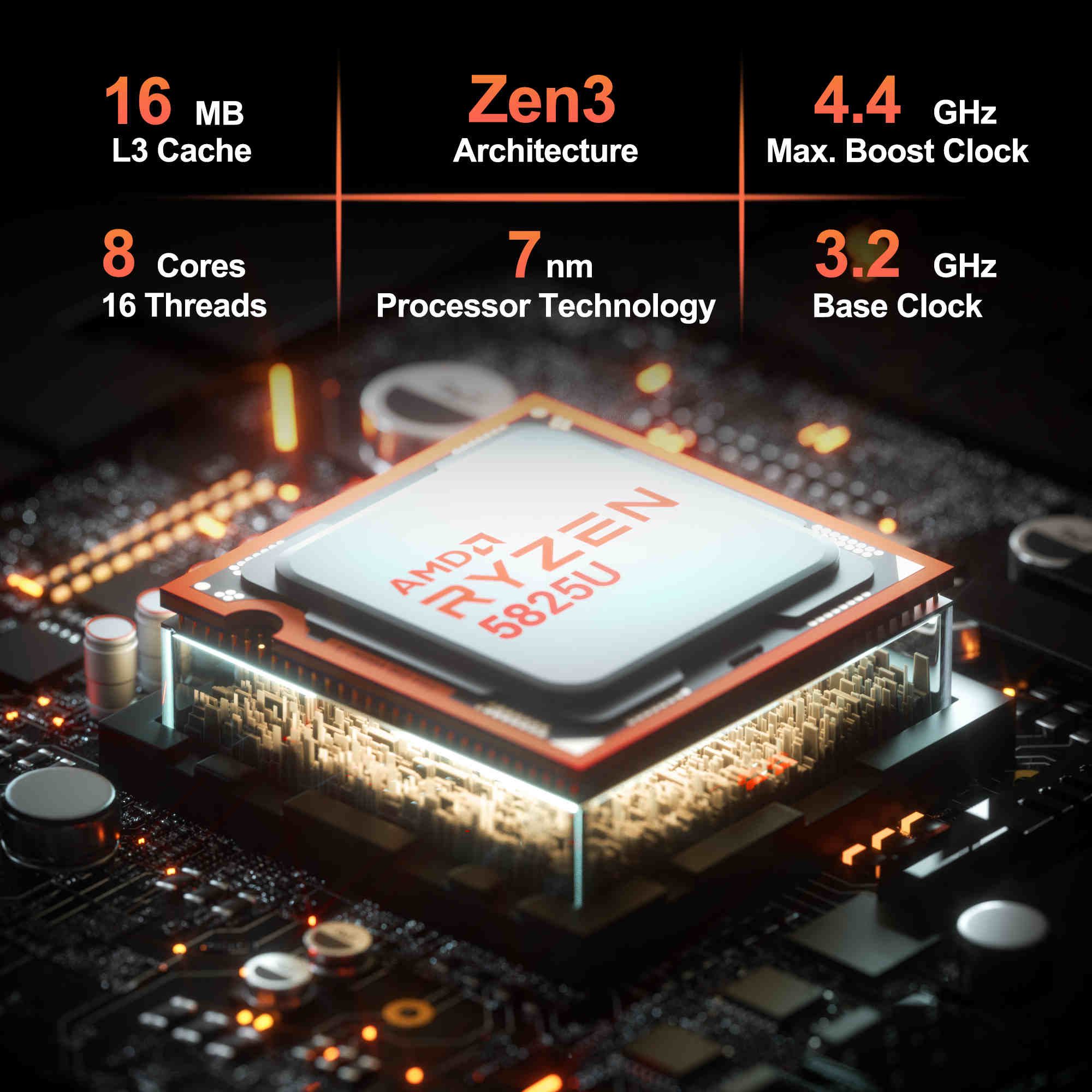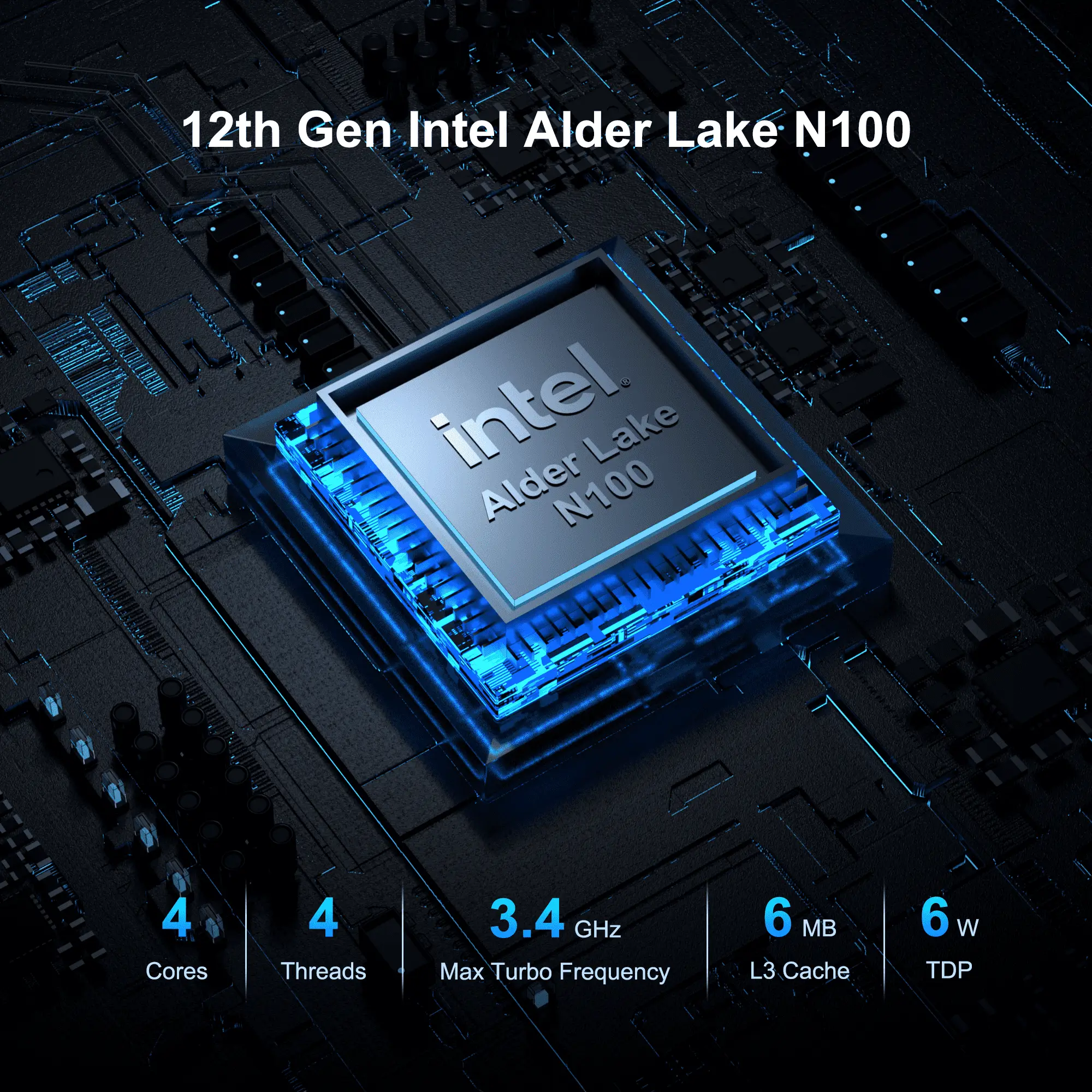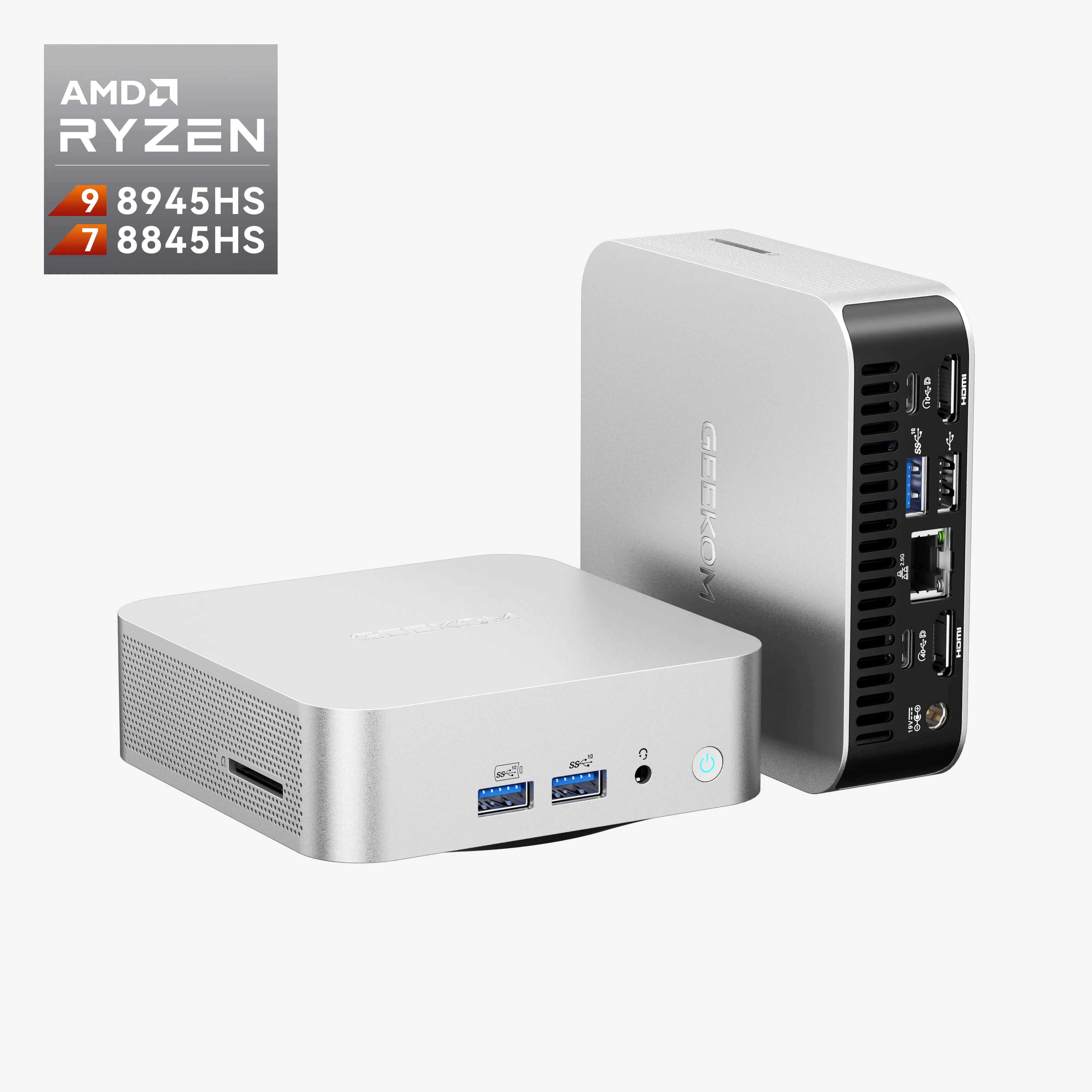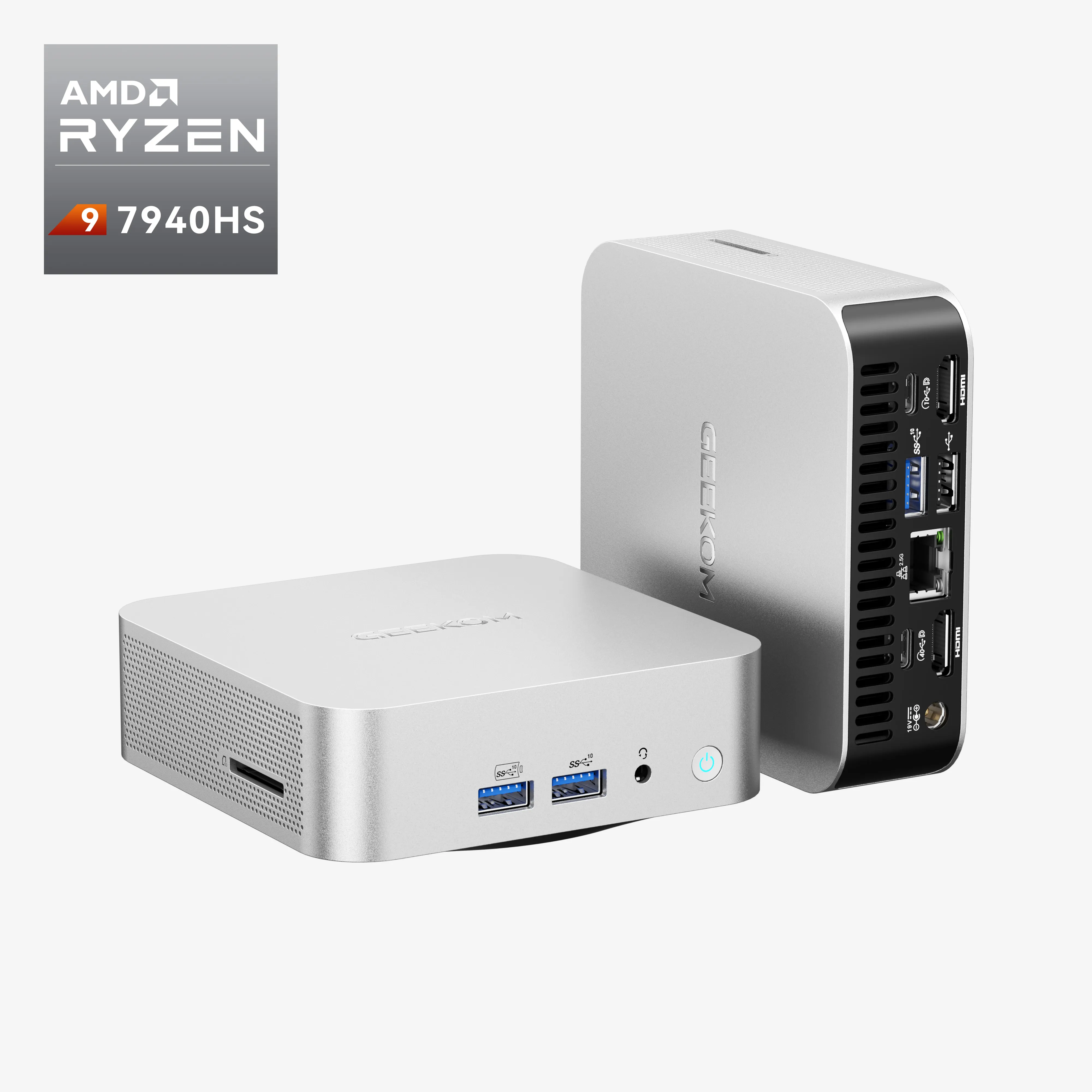If you want to get serious about making music, a quality PC is a must-have. It handles all your editing tasks, helping you turn your passion and talent into actual music.
A PC can either accelerate or slow down your music production workflows, that’s why you need to choose carefully.
The Hardware of Your PC Matters
While recording and editing music usually don’t require computers of the highest configurations, you still need a PC with decent hardware to do your work efficiently. The following are the components that matter the most.
CPU
Music production places very specific demands on CPUs, and not every processor is right for the job. Many chip makers tend to emphasize on the multi-core performance of their CPUs, but for audio processing, what really matters is single-core performance.
A CPU with fast single-core performance allows you to get your mixes into a single file much quicker and processes effects and chains without delays.
Intel’s high-end SoCs usually offer better single-core performance than AMD APUs and ARM-based processors, making them ideal for audio editing.
Music production places very specific demands on CPUs, and not every processor is suitable.
GPU
Unlike gaming or video production, where GPU performance can make or break your experience or efficiency, you don’t need the most powerful discrete graphics card for music production.
However, complex audio processing and editing often require you to work on multiple displays, you need to make sure the GPU of your PC can support more than one screen.
RAM
RAM determines how many tasks your PC can deal with at the same time. Professional audio editing apps often take a lot of RAM to run. The bigger the music production project, the more RAM you need.
For desktop PCs and most mini PCs, the amount of RAM doesn’t need to be that future-proof, as you can always add more later. But for most thin laptops, RAM is often soldered on their motherboards. If you plan to use your laptop for a few years, try to get one with at least 16GB RAM.
Storage
It can be hard to tell exactly how much storage is enough for music production. Every producer’s needs are different, so there is no set answer. However, insufficient storage may hold you back and put a damper on your workflows.
While 500GB is generally considered as the starting point for serious music producers, if you often work on several projects at the same time, you may want to upgrade your storage to more than 1TB.
Cooling
Running big audio processing apps puts a lot of pressure on the CPU, RAM, and SSD, so the internal components can get heated up easily if a PC lacks proper cooling.
Overheating has a series of negative effects on a PC, causing the system to slow down or even fail. If you don’t want your music editing process to encounter major hiccups or delays, you should use a PC that manages its temperature efficiently.
Sound card
A professional sound card is a must-have for anyone wishing to take their music production to the next level. A PCIe sound card is the best solution for a desktop PC.
Since it is connected directly to the CPU, it can process audio files a lot faster. For mini PC and laptop users, you can either live with the onboard DAC or get a decent USB sound card. The Midiplus Aturia MiniFuse2 and the Creative Sound Blaster X5 are both great options.
I/O
For professional music producers, chances are that your PC needs to be connected to lots of peripherals at the same time. While you can always use hubs for expansion, a computer with plenty of ports still offers better convenience.
Noise Ruins Everything
Although a desktop PC with lots of fans on its case offers great performance and manages the heat well, the white noise from the fans can and will ruin your music recordings.
Liquid cooling may greatly reduce the noise levels of a PC, but it also adds a lot of costs. For people with a tighter budget, actively cooled mini PCs or laptops may be better solutions.
Software Is the Key
Windows OS and macOS are often considered as the two best operating systems for music production. While you can also find digital audio workstations on Android, ChromeOS, and many Linux distributions, these apps are often not as refined or as feature-packed as the proprietary software found on Windows or macOS.
For Mac users, the best DAW is none other than the Logic Pro X, which includes a massive collection of plug-ins, and lots of creative tools for the producers to play with.
For Windows PC users, our top recommendations are the Ableton Live 10 Suite and Imagine Line FL Studio. One thing worth mentioning is that most DAWs on the Windows platform are better optimized for Intel processors.
Top 5 Inexpensive PCs for Music Production
The Apple Mac Studio (with the M1 Ultra chip) is arguably the best PC for making rhymes because of its amazing single-core performance, but it is way too pricy for average consumers. These are 5 of the best inexpensive PCs for music production.
Acer Swift 3 Intel Evo Thin
Product Highlights
- 14-inch Full HD IPS display
- Intel Core i5-1240P (12 cores, 16 threads)
- Iris Xe Graphics eligible EU80
- 16GB LPDDR4X RAM
- 512GB M.2 PCIe Gen4 SSD
- Dual Thunderbolt 4
- WiFi 6E & Bluetooth 5.2
- Dual display output
- Price: $719
The Acer Swift 3 Intel Evo Thin rocks an Intel Core i5-1240P processor, which has 12 cores, including four extremely snappy performance cores with a speed of up to 4.4 GHz.
There’s also fast LPDDR4X RAM and PCIe Gen4 SSD under the hood. As powerful as it is, the laptop is still perfectly portable, you can work on your music projects anywhere you go.
While the 8GB model may be a little bit cheaper, we suggest you get the more future-proof 16GB variant.
HP Pavilion 15
Product Highlights
- 15.6-inch Full HD IPS display
- 10-point capacitive touchscreen
- Intel Core i5-1235U (10 cores, 12 threads)
- Iris Xe Graphics eligible EU80
- 16GB LPDDR4X RAM
- 512GB M.2 PCIe Gen4 SSD
- WiFi 6 & Bluetooth 5.2
- Dual display output
- Price: $719
With fewer CPU cores, the Intel Core i5-1235U processor in the HP Pavilion 15 is not as fast as the 1240P chip in terms of multi-core performance.
However, this SoC still incorporates 2 performance cores that can turbo up to 4.2 GHz, making it capable of handling even the most sophisticated sound mixing. The 15.6-inch touchscreen can also come in handy when working with the DAWs.
ASUS ZenBook 13
Product Highlights
- 13.3-inch Full HD OLED display
- Intel Core i7-1165G7 (4 cores, 8 threads)
- Iris Xe Graphics eligible EU96
- 16GB LPDDR4X RAM
- 512GB M.2 PCIe Gen3 SSD
- WiFi 6 & Bluetooth 5.2
- Dual Thunderbolt 4
- Dual display output
- Price: $639
The ASUS ZenBook 13 comes with a slightly older Intel Core i7-1165G7 processor, but it still offers ample oomph for serious music production.
With an impressive OLED screen and amazing portability, the ZenBook 13 is perfect for music producers who travel a lot.
Apple Mac mini
Product Highlights
- Apple M2 (8 cores)
- Apple M2 GPU (10 cores)
- 8GB unified memory
- 512GB onboard SSD
- Dual Thunderbolt 3/USB4 ports
- Quad-display output
- WiFi 6E & Bluetooth 5.2
- Price: $799
The new Apple Mac mini is powered by the Apple M2 chip, which offers better single-core performance than most Intel and AMD processors while consuming less power.
Also, the latest build of the Logic Pro X DAW has been optimized for Apple’s very own silicones, so using the M2 Apple Mac mini for music production is more efficient than ever before.
GEEKOM Mini IT11
Product Highlights
- Intel Core i7-11390H (4 cores, 8 threads)
- Iris Xe Graphics eligible (EU96)
- 16GB DDR4-3200 memory (dual-channel, upgradable to 64GB)
- 512GB M.2 PCIe Gen3 SSD (expandable to 2TB)
- Dual USB4 ports
- Quad display output
- WiFi 6 & Bluetooth 5.2
- Price: $569
The GEEKOM Mini IT11 is a Windows mini PC powered by the Intel Tiger Lake Core i7-11390H processor. With a max turbo frequency of 5.0GHz, the Mini IT11’s superb CPU single-core performance makes it perfect for audio processing and sound mixing.
The combination of a power-efficient CPU, a single cooling fan, and effective heat sinks allows the mini PC to stay quiet even under heavy workloads, perfect for those who record their vocals and instruments in a home studio.
The Mini IT11’s expandable RAM and storage also make it more future-proof than any other computer on our list.


